PARICALCITOL - ORAL
PHONETIC PRONUNCIATION: (pear-ih-KAL-sit-ole)
COMMON BRAND NAME(S): Zemplar
GENERIC NAME(S): paricalcitol
Uses
USES: Paricalcitol is used to treat and prevent high levels of a certain natural substance made by the body (parathyroid hormone) in patients with long-term kidney disease. In these patients, the high level of parathyroid hormone is caused by a low level of calcium and a certain kind of vitamin D. Too much parathyroid hormone can cause serious problems such as bone disorders. Paricalcitol is a man-made form of vitamin D. It helps to reduce parathyroid hormone levels and may help your body absorb calcium and phosphorus.
How to use PARICALCITOL - ORAL
HOW TO USE: Take this medication by mouth with or without food, usually once daily or 3 times a week or as directed by your doctor. If you are taking this medication 3 times a week, do not take it more often than every other day. Dosage is based on your medical condition, laboratory tests, and response to treatment. Use this medication regularly in order to get the most benefit from it. To help you remember, take it at the same time each day. If you are taking this medication on a schedule other than every day (e.g., 3 times a week), it may help to mark your calendar with a reminder. It is very important to follow the diet recommended by your doctor to get the most benefit from this medication and to prevent serious side effects. Do not take other supplements/vitamins (e.g., calcium, vitamin D) unless ordered by your doctor.
Side Effects
Precautions
Interactions
Overdose
Images
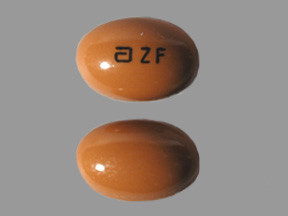
- color
- orange-brown
- shape
- oblong
- imprint
- logo and ZF
Reviews
Faq for PARICALCITOL - ORAL
Paricalcitol is an oral medication used to treat and prevent low levels of vitamin D in the body, particularly in patients with chronic kidney disease.
Paricalcitol works by helping the body absorb and use calcium and phosphorus, which are essential for bone health. It also helps to regulate parathyroid hormone (PTH) levels, which can become too high in people with kidney disease.
Some common side effects of paricalcitol may include nausea, vomiting, diarrhea, headache, dizziness, and increased thirst. It is important to inform your doctor if any side effects persist or become severe.
Paricalcitol is typically taken orally, as directed by your doctor. It is important to follow the dosage instructions carefully and not exceed the prescribed amount. The medication is usually taken with food to enhance absorption.
Paricalcitol may interact with certain medications, including corticosteroids, digoxin, diuretics, and certain antacids or laxatives containing magnesium. Be sure to inform your doctor or pharmacist about all the medications you are currently taking to avoid any potential interactions.
The effects of paricalcitol may be seen within a few weeks, but it typically takes several months of treatment to achieve full therapeutic benefits. It is important to continue taking the medication as prescribed, even if you start feeling better.
Paricalcitol should be used during pregnancy only if clearly needed. It is not known whether the medication passes into breast milk, so consult your doctor before taking paricalcitol while breastfeeding.
If you miss a dose of paricalcitol, take it as soon as you remember. However, if it is close to the time of your next scheduled dose, skip the missed dose and resume your regular dosing schedule. Do not double the dose to make up for a missed one.
Taking more than the prescribed dose of paricalcitol can lead to vitamin D toxicity, which can cause symptoms like nausea, vomiting, weakness, confusion, and increased thirst. If you suspect an overdose, seek immediate medical attention.
Disclaimer
IMPORTANT: HOW TO USE THIS INFORMATION: This is a summary and does NOT have all possible information about this product. This information does not assure that this product is safe, effective, or appropriate for you. This information is not individual medical advice and does not substitute for the advice of your health care professional. Always ask your health care professional for complete information about this product and your specific health needs.

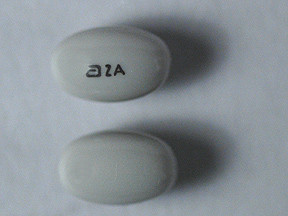
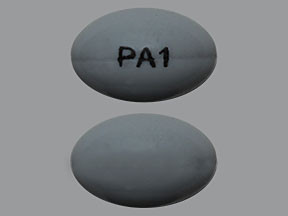
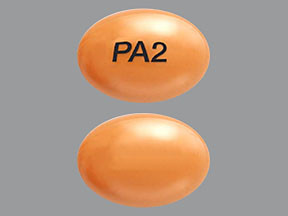
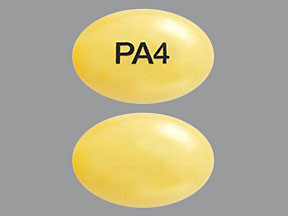
No Reviews Yet